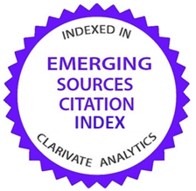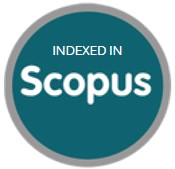POLICÍA NACIONAL DE COLOMBIA
Open Access Policy
Revista Criminalidad is an open-access publication, meaning that all its content is freely available without charges for users or their institutions. Users can read, download, copy, distribute, print, search, or link to the full texts of articles or use them for any other lawful purpose without prior permission from the publisher or author.
In this regard, Revista Criminalidad supports the principles of open science, which aim to promote more accurate, transparent, and reproducible knowledge. These criteria include various processes to optimize research and enhance data reuse, which, according to the OECD (2015) [1], help reduce research costs, increase knowledge transfer, and strengthen cooperation among different research groups worldwide. Replicability contributes to more open science, based on valid data and directed toward the social appropriation of universal knowledge. These open science processes include access to articles, editorial management, and access to raw data, processing, and analyses underlying empirical evidence.
Revista Criminalidad adheres to Colombia’s National Open Science Policy (2022) [2], which promotes an intellectual property vision based on the open distribution of scientific resources and findings. This perspective aligns with the fundamental principles of science and its communities, whose ultimate goal is solving relevant social issues and driving innovation for development (MINCIENCIAS, 2018, 2022) [3].
From this perspective, the journal implements a series of processes that allow the general public to access data, instruments, and data analysis strategies. This is especially relevant when authors employ open coding and data analytics but also in reviews, qualitative, exploratory, or descriptive studies, where readers can access instruments and statistical processing. Additionally, the journal does not charge any fees at any editorial stage or for access to published articles.
Copyright management and licensing
Revista Criminalidad promotes open access to scientific information and respects the copyright of researchers. Authors retain copyright over their works and grant the journal a non-exclusive publishing license, allowing its dissemination under the terms of the Creative Commons Attribution-NonCommercial-NoDerivatives 4.0 (CC BY-NC-ND 4.0) license.

This license permits anyone to share and redistribute the content, provided that proper credit is given to the authors and the source of publication, and that no modifications, adaptations, or derivative works are made from the original material. If an article is rejected, the rights remain with the authors, allowing them to submit it to another publication without restrictions.
Rights and limitations of authors and users under the CC BY-NC-ND 4.0 License
Strategies for open science
- Analysis plan: authors are asked to indicate whether the study has been registered in their country of origin, providing the registration number and the issuing institution.
- Open access: during submission, authors must provide access to databases, codes, programming, or study instruments. if restrictions apply, they must be disclosed and properly justified to the journal.
- Replication process: authors must cite previous studies when their research is a direct or systematic replication of their own or third-party work.
- Conflict of interest: authors and reviewers must explicitly declare any conflict of interest that could affect the acceptance and publication of the study. additionally, rigorous ethical principles must be followed in all aspects of the publication process.
Public Statement as a signatory of DORA
As a publication committed to the dissemination and analysis of topics related to Criminology, Revista Criminalidad announces its adherence to the San Francisco Declaration on Research Assessment (DORA).
We recognize the importance of promoting transparency, integrity, and ethics in research and publication within our field. By signing DORA, Revista Criminalidad commits to:
- Promoting transparency: providing open access to research and ensuring that peer review processes are clear and accessible.
- Valuing diversity and inclusion: fostering a collaborative environment that includes diverse voices and multiple perspectives within criminology.
- Prioritizing quality over quantity: focusing efforts on the quality of research and publication, rather than on metrics that do not reflect true impact.
- Fostering ethics in research: ensuring that all editorial and research practices comply with the highest ethical standards.
- Commitment to continuing education: providing resources and training to authors, reviewers, and readers on best practices in research and publication.
Revista Criminalidad is committed to working in collaboration with other DORA signatories and the academic community in general to create a more ethical and responsible research environment. We firmly believe that by adhering to these principles, we will contribute to building a more just and equitable future in the field of criminology.
Bibliography
[1] OECD (2015). Making Open Science a Reality. OECD Science, Technology, and Industry Policy Papers, 25. http://dx.doi.org/10.1787/5jrs2f963zs1-en
[2] MINCIENCIAS (2022). Resolution No. 0777 of 2022. Colombia’s National Open Science Policy 2022-2031. https://minciencias.gov.co/pdf/pdfreader?url=https://minciencias.gov.co/sites/default/files/politica_nacional_de_ciencia_abierta_-2022_-_version_aprobada.pdf
[3] MINCIENCIAS (2018). Guidelines for an Open Science Policy in Colombia. https://www.colciencias.gov.co/sites/default/files/ckeditor_files/Lineamientos%20ciencia%20abierta%2017-dic-2018-doc.pdf
















